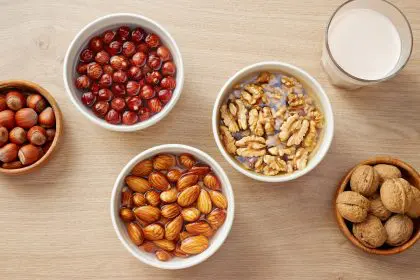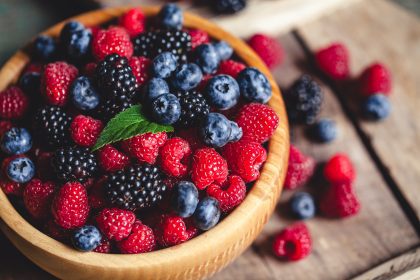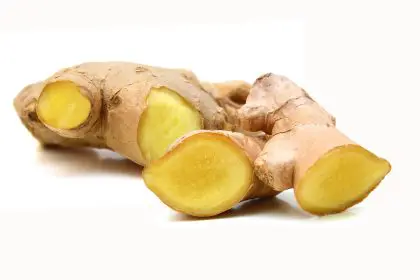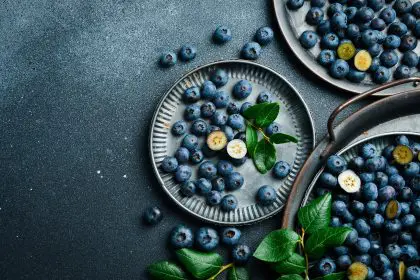While aging remains an inevitable natural process, scientific research continues to reveal how certain foods can help slow its visible effects and support overall cellular health. Modern nutritional science has identified specific compounds within common foods that actively combat the biological mechanisms of aging. Understanding these relationships allows for more informed dietary choices that support long-term health and vitality.
Understanding antioxidants and aging
The role of antioxidants in fighting cellular aging has become increasingly clear through scientific research. These powerful compounds neutralize free radicals, unstable molecules that damage cells and accelerate the aging process. Natural foods rich in antioxidants provide the body with essential tools to combat this oxidative stress, helping maintain both internal health and external appearance.
Herbs as anti-aging powerhouses
Basil emerges as a surprisingly potent anti-aging ingredient, containing concentrated antioxidants that provide multiple protective benefits. These compounds actively shield vital organs, including the heart, liver, and brain, from free radical damage. The herb’s protective properties extend to nerve cells, helping maintain cognitive function and overall neurological health. Including fresh basil in daily meals offers an easy way to incorporate these beneficial compounds into the diet.
Leafy greens and cellular protection
Kale stands out among leafy greens for its exceptional vitamin K content, with a single cup of cooked kale providing nearly twelve times the recommended daily value. This crucial nutrient plays vital roles in maintaining bone health and cardiovascular function. Beyond vitamin K, kale’s high fiber content supports heart health by helping regulate blood pressure and cholesterol levels. The combination of these nutrients creates a powerful anti-aging effect at the cellular level.
Fruit-based anti-aging compounds
Pomegranates contain unique compounds that provide dual anti-aging benefits. The juice from pomegranate seeds delivers two specific agents that combat free radical damage while simultaneously preserving skin collagen. This combination helps maintain skin elasticity and prevent premature aging signs. The fruit’s protective effects extend beyond surface-level benefits to support overall cellular health.
Berry benefits for skin health
Blackberries demonstrate remarkable antioxidant activity, surpassing most other fruits and vegetables in their ability to neutralize free radicals. This high antioxidant content specifically targets the factors that contribute to skin aging and wrinkle formation. Regular consumption of blackberries provides sustained protection against various forms of cellular damage that accelerate the aging process.
Lycopene and UV protection
Tomatoes provide natural sun protection through their high lycopene content. This compound acts as a natural sunblock, helping prevent UV-related skin damage that leads to age spots, dryness, and wrinkles. Interestingly, cooking tomatoes increases lycopene bioavailability, making cooked tomato products particularly effective for anti-aging benefits. This knowledge helps optimize the protective effects of tomato consumption.
Cruciferous vegetables and cellular health
Brussels sprouts contain powerful sulfur compounds that may help prevent cellular damage and support overall health. These vegetables provide high levels of vitamin C, essential for collagen production and free radical protection. The combination of these nutrients creates a comprehensive approach to cellular protection and anti-aging support.
Vitamin C powerhouses
Red bell peppers demonstrate exceptional vitamin C content, containing significantly more than many green vegetables. This high vitamin C concentration stimulates white blood cell production, enhancing immune function. Research published in The American Journal of Clinical Nutrition suggests that diets rich in vitamin C correlate with reduced wrinkle formation, likely due to enhanced collagen production.
Hidden anti-aging gems
Eggplant skin contains a concentrated source of anti-aging compounds, offering even higher antioxidant levels than many berries. These compounds actively protect cell membranes from damage, helping maintain cellular integrity and function. Understanding the importance of consuming the whole vegetable, including the skin, helps maximize these anti-aging benefits.
Creating an anti-aging eating strategy
Incorporating these foods into daily meals requires thoughtful planning but offers significant long-term benefits. Creating varied meal plans that include multiple anti-aging foods helps ensure comprehensive nutrient intake while maintaining dietary enjoyment. Regular consumption of these foods provides cumulative benefits for both internal health and external appearance.
Maximizing nutritional benefits
Understanding proper food preparation and combination can enhance the bioavailability of anti-aging compounds. Some nutrients work synergistically, while others require specific preparation methods to maximize their benefits. This knowledge helps optimize the anti-aging potential of these foods through informed cooking and eating practices.
















